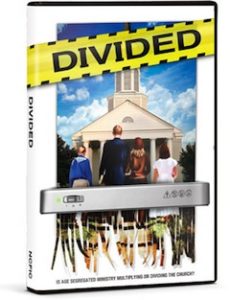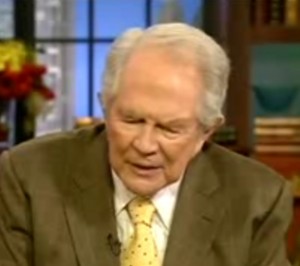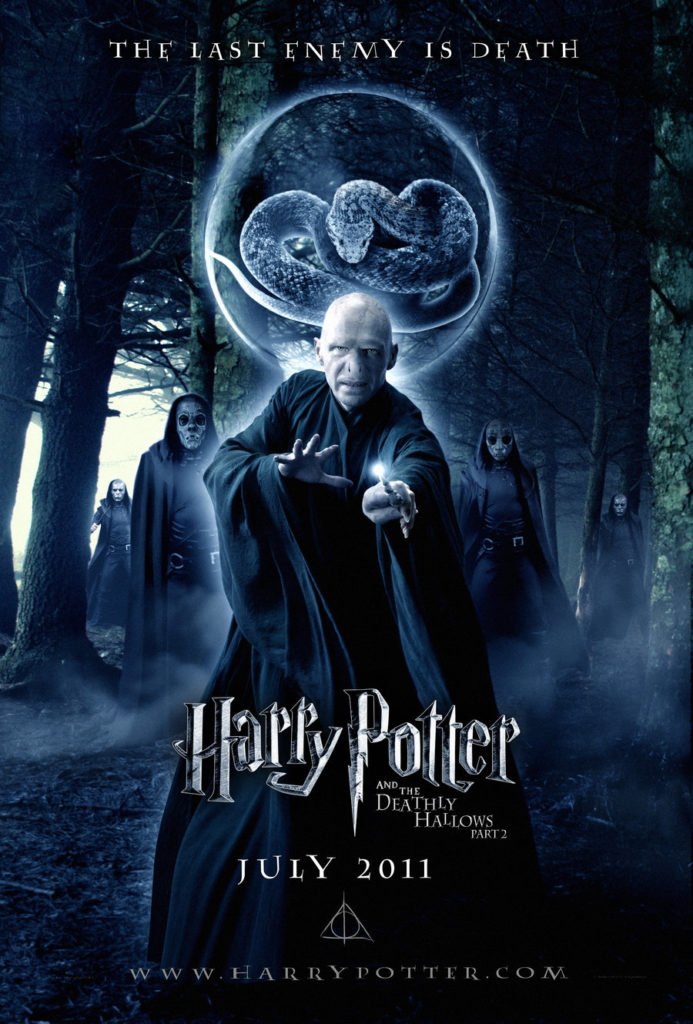‘Harry Potter’ and The Issues Beyond Fiction, Part 3
 Blimey, this series is just writing itself. And I don’t even need a Quick-Quotes Quill to do it.
Blimey, this series is just writing itself. And I don’t even need a Quick-Quotes Quill to do it.
It seems everybody is talking again about Christians and Harry Potter. That includes some sporadic sources still trying to keep up the “mark the books demonic; avoid!” mantra. But most of what I’ve heard is from others defending the Potter books and having some snarky howlers over silly legalists and other ignorance — like of course, Pat Robertson, who’s still following the Panicked Email Forwards school of media engagement and discernment.
How long, then, can I restrain my own snarkiness?
I hope permanently, for this series — because I’ve seen what happens when Christians try to fight sin with more of the same.
Examples: Does Harry Potter deceive? Then maybe it’s sort of okay to be loose with facts in return. Do the books promote mysticism? Fight fire with fire, then: let’s act like shamans and fear objects, Things, as if they are possessed by evil spirits. Or maybe we should even outsource discernment to others, who may or may not do discernment Biblically. …
So I suggest it’s not enough just to deflect other Christians’ undiscerning fire against certain books, declaring the books amoral and the critics ignorant. Of course, it’s much better to show how we can glorify God actively with a certain practice. Yet next in this series I’ll explore the fact that many Christians, in the name of “discernment,” may fall into behaviors that are both un-Biblical and even the same sins as those they decry.
This affects Christians in more ways than deciding whether to read or enjoy one book series. How we think about Harry Potter crosses into other real-life beliefs and practices …
7. Because of the Word’s commands not to get tied up in fake rules.
Here’s a long Bible passage that should be read in full to get the full message. (Or is it just me who faces the temptation to skip these parts while reading a book or blog column? 😀 )
And you, who were dead in your trespasses and the uncircumcision of your flesh, God made alive together with him, having forgiven us all our trespasses, by canceling the record of debt that stood against us with its legal demands. This he set aside, nailing it to the cross. He disarmed the rulers and authorities and put them to open shame, by triumphing over them in him.
Therefore let no one pass judgment on you in questions of food and drink, or with regard to a festival or a new moon or a Sabbath. These are a shadow of the things to come, but the substance belongs to Christ. Let no one disqualify you, insisting on asceticism and worship of angels, going on in detail about visions, puffed up without reason by his sensuous mind, and not holding fast to the Head, from whom the whole body, nourished and knit together through its joints and ligaments, grows with a growth that is from God.
If with Christ you died to the elemental spirits of the world, why, as if you were still alive in the world, do you submit to regulations—“Do not handle, Do not taste, Do not touch” (referring to things that all perish as they are used)—according to human precepts and teachings? These have indeed an appearance of wisdom in promoting self-made religion and asceticism and severity to the body, but they are of no value in stopping the indulgence of the flesh.
— Colossians 2: 13-23
Follow Paul’s beautiful, Spirit-inspired logic, as pertains specifically to discernment choices:
- Jesus has made all Christians alive. Yes, we still struggle with sin, but He saved us.
- Christ also publicly mocked and shamed evil entities and demonic authorities. While they still pose a threat, they ultimately have no power over His Kingdom children.
- “Therefore” avoid rules, imposed by others, requiring us to celebrate holidays, avoid certain foods, or claim other things Scripture doesn’t specifically address. Enforcing Old Testament holidays and food commands as if they are still binding is especially wrong, because “these are a shadow of the things to come” — the real Law that Christ has already fulfilled. (My thought: then how much more absurd would it be to enact standards upon standards, which aren’t even mentioned in the Old Covenant Law!)
- And if you do base your life on man-made rules like that, they won’t work anyway. They seem decent and wise, but won’t stop the worse problem: “the indulgence of the flesh,” the human heart that, if left unchanged on the inside, will secretly go wild.

Another attempt to blame cultural Things for Christianity’s ills (which could downplay that whole Gospel-rejection issue). So should we turn to media shamanism?
Despite this clear Scripture, someone’s always skipping past it and trying to diagnose and fix problems in the Church apart from the Gospel that changes hearts. Our churches are too big. Too small. Too new. Too old. Too legalistic. Too worldly. Recently I read Tim Challies’ review of one latest attempt: a DVD that portrays most or all youth groups and Sunday schools as things that have corrupted kids and driven them from Christianity. Even if all youth groups are bad, such criticisms seem, again, just more applications of Band-aids to dead bodies. More rules won’t raise the spiritually dead. People must be convicted by the Spirit, using God’s real Law that drives them to Christ, the Gospel, the Kingdom, and joy.
I think many Potter critics, though not all of them, have not fully accepted this. Or if they have, they haven’t yet let it carry over to their media decisions and other discernment beliefs.
8. Because most Christians already believe someone is able to avoid some tough temptations; they just don’t apply this consistently.
The more you think about this one, the more ridiculous it could seem! This is because — and actually to their credit — many critics of things like Harry Potter have not fully avoided the books or movies. Instead they have bravely thrown themselves into the paths of the books or movies, supposedly to see what they’re about, then to warn the rest of us.
That’s fair enough. I enjoy movie reviews from Plugged In and other sites whose writers may tell me whether a film seems worth my attention. And I do believe some Christians, gifted in certain ways, can be stronger than others against assaults from media and anti-God stories.
But in that case, why not try to educate others to be as strong as the critic is?
Instead of Christian Potter critics teaching “This is how I resisted cultural assaults on my beliefs, and here’s how you can too,” we get what can only be called media shamanism.
Growth in grace is not enough protection for you. Instead you also need me! I will bravely face the Evil Object on your behalf. I will get prayed up and spiritually strong to take it on, see what’s evil about it, and let you know what to avoid. To protect you, and in the Public’s Best Interest, I will hear the bad words and censor them, put up with the paganism, and Remove the Offensive Portions of the Image so that you won’t need to be exposed to it.
Or, to cite specific examples:
I had plenty of company last Saturday morning as I hurried into the movie theater to see the final film in the Harry Potter series. (from this review of the recent film)
… But you should stay away from it yourself. I caught the grenade for ya. Yeah, yeah, yeah.
Walt Disney has used the same subliminal filth in their children’s movies. Here’s the male organ in the scene up close. American society has become so filthy and lewd. (from Joe Camel and Sexual Perversion at Jesus-is-Savior.com)
… So here, it’s the offensive part right in front of your face so you can see how offensive it is!
Many of us object when politicians promise to take more money to help Protect You Better. But swap take your money for take your Biblical freedom? Well, if it’s for my good, sure!
It would be too easy simply to call this hypocrisy, and too hard to avoid implying that all we must do to show a standard is false is to prove some of its advocates don’t really follow it. This alone doesn’t prove a standard un-Biblical. But it does prove that many such adherents do allow exceptions, as long as they get to be the media shamans seen as stronger.
Such activists seem to perceive an invisible choir of victims who must be “protected,” thanks to the shaman’s superior spirituality. That “choir” could include people who actually do need help, such as children. But too many also include Christians who would better be taught how to discern in Biblical ways themselves, rather than outsourcing their discernment to shamans. Christ alone is our “mediator.” He gives His Word and His Spirit to help us grow and figure things out. To say “that’s not enough” comes very close to blasphemy — setting one’s self up as an idol, an extra step, between a Christian and Christ.

“You don’t need to involve yourself in witchcraft, and the occult. … It is seductive.”
Let’s take Pat Robertson from up there as an example — and because he’s too easy a target, and surely means well, I think we can be kind. Maybe he never intended to become a media shaman for others. But I would ask a few questions to discern any “discernment” teacher:
- Does he regularly encourage others to keep him in check with Scripture?
- Does he base his teachings on the complete Biblical Gospel and all its fruits?
- Do his relevant beliefs align with ours, such as about how much power the Devil has?
- What about his view of where sin originates? Is it Biblical to say “amen” to a Pelagian and false statement like “Don’t give an entryway into your heart, your family’s heart, or your child’s heart,” which ignores what Christ said about sin’s source (Mark 7)?
- Is he basing anything he “discerns” on outdated, wrong, or slanderous information?
So here’s my suggestion, which works even while accepting the (wrong) premise that Harry Potter is evil, but taking into account the fact that many Christians do believe some people are strong enough to face evils. Instead of crying “protect me from evil spirits!” to un-Biblical outsourced media shamans, why not ask those with more-Biblical discernment: “Hey, can you teach me how you got so spiritually strong so I can also be strong?”
Cut out the middle men. There’s only One of those, and He doesn’t like competition.
Bonus question from above: 6. Might the questionable “discernment” folks actually practice the very sins of “magic” and paganism they claim to avoid? That is a question I’ve had to delay for another column, after more research and thought, and likely for next Thursday.





























I think “media shaman” is the best term I’ve heard in awhile. snicker
And the term media shaman refers not only to the convenient financial and fame benefits of being “in between” someone and supposed evils, but to their actual and close-to-paganism methods practiced supposedly to avoid those evils.
We should be civil, sure. Then again, I see no reason why we shouldn’t tell things like they are. When Christians slander and engage in obvious hate toward something that is clearly on the side of Christ, they are behaving like fools and actually dishonoring Christ and harming themselves and their witness. No reason not to tell it like it is and admonish them to “stop acting like a prat.” Or, in this case, to stop acting like Percy Weasley and Vernon Dudley!
Speaking the truth is not a sin. Slander and shaming the cause of Christ certainly are. Jesus had some very strong words for the Pharisees, as did Paul and the other Apostles. After repeatedly being gently dealt with, then Christ finally stopped being gentle. After twelve years of Potter, these Harry Haters are just being belligerent at this point.
I really enjoyed this perspective. I don’t think this is one I’ve really considered before, that someone (for example) like Pat Robinson has set himself up as a mediator/shaman for us.
On a slightly different, but related note, when the Harry Potter series first came out, I heard a lot of people saying things like, “I get an evil feeling about it.” Or “It doesn’t sit well with my soul.” Rather than using actual, biblically-based discernment or scriptural arguments, they relied on their feelings alone, and expected us to accept that as a word from the Lord. That looks more like searching for omens and portents than it does biblical research.
Thanks for the terrific entry.
Just to be completely ornery:
1. I can think of several times I’ve experienced genuine ‘checks’ of the Spirit in my life. Not too many, but a few. And, honestly, there really was a problem. I think the only book I’ve gotten weird about is the Book of Mormon, but I think that was just me being weird.
2. While I know what everyone here means by ‘media shamanism,’ I also think it wise not to swing so far the other way we forget that, to cite Harry Dresden, “Just because I’m paranoid doesn’t mean there isn’t a demon about to eat my face off.” 0=)
I think the difference between the example I gave, and the scenario of which you speak is this: My example is of a person who relies on their feelings in lieu of a biblical reason. Your example speaks of a person familiar with the bible, understanding a biblical concept (perhaps subconsciously), and feels a genuine check by the Spirit that then leads to a search of the bible that yields a scriptural foundation.
😛
There is a place for the ‘shaman’ role–the only one I can think of–
Parents to their children.
And that’s a case when it can be good. And advice is good too, but we do need to be able to distinguish for ourselves.